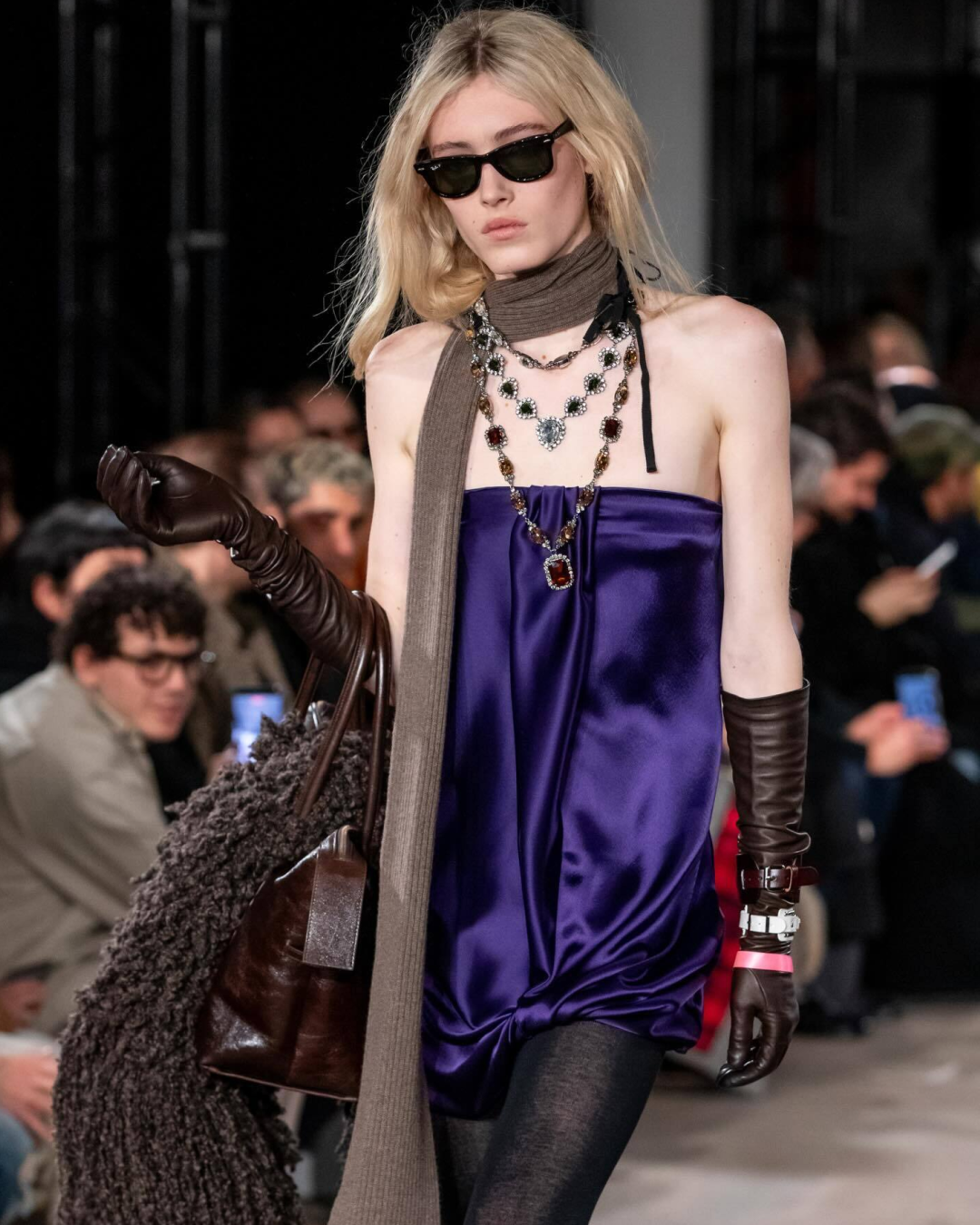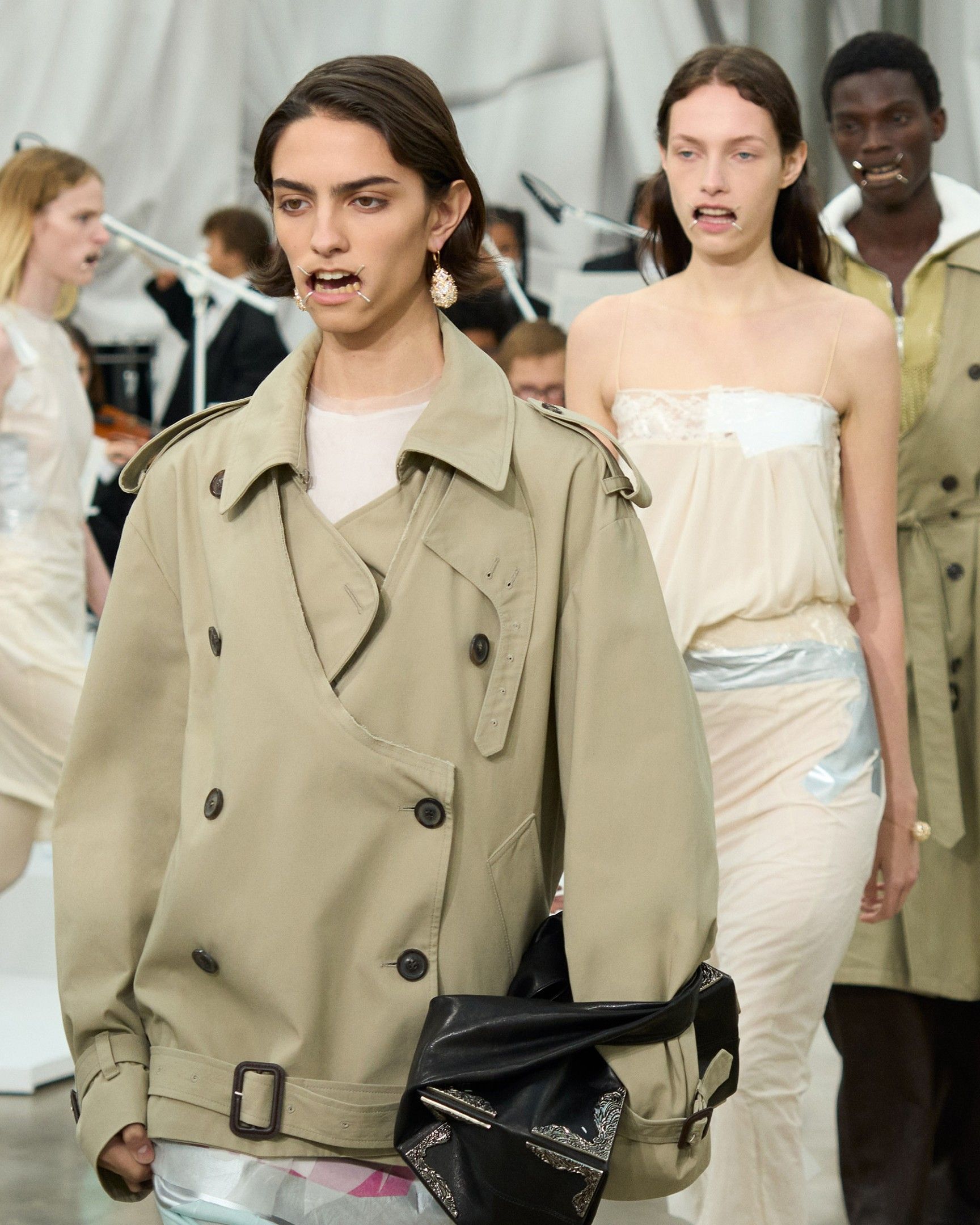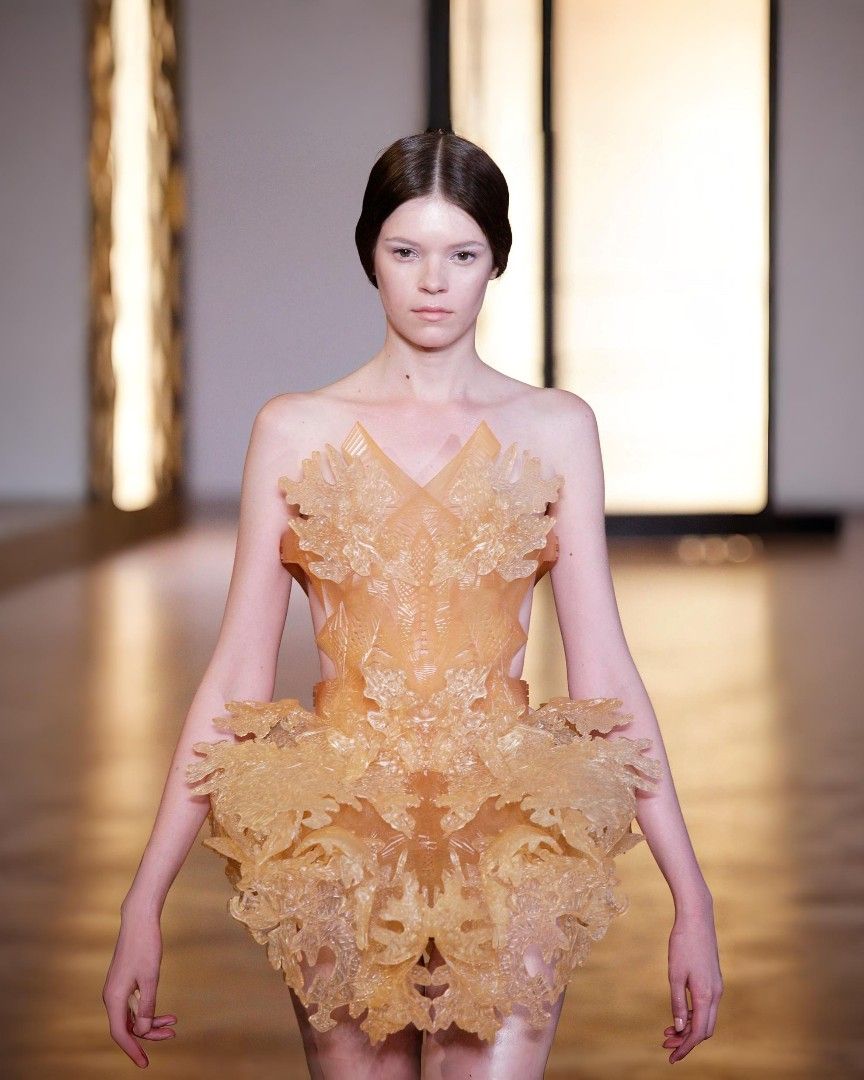
Jacquemus and the challenges of independent designers The success of one testifies to the difficulty of many
During a ceremony held at its brand-new headquarters in Paris, Simon Porte Jacquemus was awarded the prestigious title of Knight of the Order of Arts and Letters in recognition of his innovative contributions to the fashion industry. The event, which took place during Paris Fashion Week, was attended by a list of distinguished guests including Laetitia Casta, Carine Roitfeld, and Amanda Lear, along with Jacquemus' family members. In her speech, Anna Wintour also paid tribute to Jacquemus' unconventional rise, praising his bold approach to fashion and commitment to his community. Reflecting on Jacquemus' remarkable journey, Wintour humorously recalled his early guerrilla-style fashion shows and celebrated the maturation of his aesthetic. "Simon's story is that of a young man who launched his brand challenging conventions, listening to his friends and his heart. Instead of entering the industry in the traditional way, getting a degree, working with a major designer, he burst onto the scene using everything he could to attract attention," commented Wintour, summarizing Jacquemus' long and remarkable journey – which last year also entered the Top 10 most searched brands on Lyst, rising from ninth to eighth position in the site's latest quarterly report after starting the year in twentieth - a significant leap forward.
@jacquemus I don’t have words to express how I feel. MERCI (Yesterday, I was appointed "Chevalier De L'Ordre Des Arts Et Des Lettres" by #AnnaWintour snowfall - neheart & reidenshi
In Lyst's ranking of the most searched fashion brands in the fourth quarter of 2023, only five of the brands in the Top 20 were independent. The first of these is Jacquemus in eighth position, followed by Burberry in ninth, Skims in fourteenth, and The Row and JW Anderson in eighteenth and nineteenth position respectively. But Jacquemus, the brand that has advanced the most, starting the year in 19th position and entering the Top 10 as the only independent brand except Burberry. Another noteworthy point: of all these brands, Jacquemus is the only one that is an authentically "indie" and self-founded brand – except for The Row, which is a newcomer. The major independent brands are in fact now historic companies with impressive economic and financial structures, as well as a network of retail outlets scattered worldwide; JW Anderson has the financial support of LVMH, which in 2013 acquired a significant minority stake in the brand at the time of founder Anderson's appointment as creative director of Loewe; Skims, on the other hand, this summer received a valuation of $4 billion, raising $270 million in funding and with the media power of Kim Kardashian behind it. But why then does Jacquemus stand practically alone among the independents in this ranking? How has it managed to advance more than the others? And, finally, what does this positioning tell us about today's fashion industry?
Since Lyst always includes the reasons for a certain placement in its Top 20, it is easy to see how the brand's success continues to be based, just as it was for the boom it had during the lockdown, on the divas who wear it, the viral shows and campaigns, and, in short, on capturing the social moment. If the other "corporatized" brands mark the signing of important ambassadors in the Asian market, product launches, or a return to this or that fashion week, Jacquemus is the only one that seems to rely on a kind of popular success inextricably linked primarily to ingeniously (and seemingly) simple and naive marketing campaigns, to the public support of any conceivable celebrity and, finally, to the personal charisma of the designer and founder who, let's remember, uses the brand's Instagram profile as its own personal one in a mix of veiled thirst trap, sincerity and product placement.
@pariscameraroll New Jacquemus Store in Paris 58 Av. Montaigne @jacquemus #jacquemus #jacquemusparis #jacquemusstore #jacquemusstoreparis #parisshopping #parisfashion #parisluxury #parisluxuryshopping #shoppinginparis #parisshoppingtrip #parisshoppingguide Vogue (Edit) - Madonna
Nonetheless, it is worth noting that the brand was founded in 2009, debuted at Paris Fashion Week in 2012, and only in 2019, with the show among the lavender fields in Provence, did it become a true (albeit young) institution. What one reads between the lines, however, is that it is precisely this very long journey that began more than a decade ago and tireless marketing, with all the efforts it entails, that represent the formula for a success that is increasingly complex for independent brands to achieve. If for years there have been rumors, for example, about the financial difficulties of mega-successful brands such as The Row, if The Attico had to wait nine years to tread a catwalk, if Raf Simons closed its doors and, as the rumors say, Peter Do would have to rely on the financial backing of Fast Retailing, which then made him creative director of Helmut Lang one understands how in reality the fashion industry constitutes an inclement, if not hostile, environment for the growth of independent brands.
Why are gimmicks cool when Jacquemus uses them to construct a narrative to convince you that his H&M quality garments are luxury?
— LOUIS (@LouisPisano) September 25, 2023
The lesson that Jacquemus teaches us pertains to the business model. To quote House of Cards: «If you don't like how the table is set, turn over the table». In other words, to challenge the established norms of the fashion industry, one must somehow operate outside of it and find new models, perhaps even based on different production and retail concepts. But another lesson we can draw from Jacquemus's success is that of compromise. Last year, the brand revealed it was about to reach 200 million euros in annual revenue with the goal of reaching half a billion by 2025. This confirms that a community and a customer base exists and is solid despite the fact that the brand has a single flagship boutique in Paris that was supposed to stay open for six months but is still going strong with a perpetual line of visitors in front of it at all hours of the day and several pop-up initiatives. This success, which has also extended into the world of celebrities, has not been echoed in the notoriously resistant world of fashion insiders who criticize the brand and its collections, the quality of its products, and its various marketing strategies. This type of attitude is directed at numerous independent brands, especially in Europe, which are hailed as the new guard that will save fashion from the late capitalist abyss on one hand but are accused of banality, poor quality, and the exploitation of this or that aesthetic on the other, creating the paradox of designers loved externally but harshly criticized internally.
The compromise lies right here: between commercial demands and personal identity and visions. It is difficult to determine who is right in this struggle. On one hand, many criticisms often have a valid basis, but on the other, it is clear that an independent brand must establish itself as it can. After all, the ultimate judge of a brand remains sales, as critical acclaim doesn't pay the electricity bills. But the real question is, if it took Jacquemus over a decade and a great deal of effort to break into the Top 9 of the most sought-after brands, what space can independent brands find under the oligopoly of major conglomerates like LVMH or Kering? And, more importantly, can you achieve 200 million euros in annual revenue without making a few enemies?












































